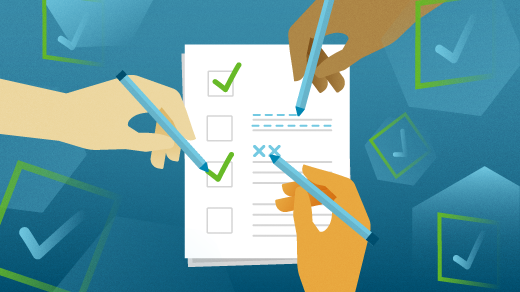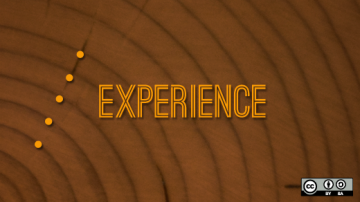Time poverty—the idea that there's not enough time to do all the work we need to do—is it a perception or a reality?
The truth is you'll never get more than 24 hours out of any day. Working longer hours doesn't help. Your productivity actually decreases the longer you work in a given day. Your perception, or intuitive understanding of your time, is what matters. One key to managing productivity is how you use the time you've got.
You have lots of time that you can use more efficiently, including time lost to ineffective meetings, distractions, and context switching between tasks. By spending your time more wisely, you can get more done and achieve higher overall job performance. You will also have a higher level of job satisfaction and feel lower levels of stress.
Jumpstart your productivity
1. Eliminate distractions
When you have too many things vying for your attention, it slows you down and decreases your productivity. Do your best to remove every distraction that pulls you off tasks.
Cellphones, email, and messaging apps are the most common drains on productivity. Set the ringer on your phone to vibrate, set specific times for checking email, and close irrelevant browser tabs. With this approach, your work will be interrupted less throughout the day.
2. Make your to-do list verb-oriented
To-do lists are a great way to help you focus on exactly what you need to accomplish each day. Some people do best with a physical list, like a notebook, and others do better with digital tools. Check out these suggestions for open source productivity tools to help you manage your workflow. Or check these six open source tools to stay organized:
- Joplin, a note-taking app
- Wekan, an open source kanban board
- TaskBoard, a lightweight kanban board
- Go For It, a flexible to-do list application
- Org mode without Emacs
- Freeplane, an open source mind-mapping application
Your list can be as sophisticated or as simple as you like, but just making a list is not enough. What goes on your list makes all the difference. Every item that goes on your list should be actionable. The trick is to make sure there's a verb. For example, "Smith project" is not actionable enough. "Outline key deliverables on Smith project" gives you a more concrete task to complete.
3. Stick to the 10-minute rule
Overwhelmed by an unclear or unwieldy task? Break it into 10-minute mini-tasks instead. This can be a great way to take something unmanageable and turn it into something achievable.
The beauty of 10-minute tasks is they can be fit into many parts of your day. When you get into the office in the morning and are feeling fresh, kick off your day with a burst of productivity with a few 10-minute tasks. Losing momentum in the afternoon? A 10-minute job can help you regain speed.
Ten-minute tasks are also a good way to identify tasks that can be delegated to others. The ability to delegate work is often one of the most effective management techniques. By finding a simple task that can be accomplished by another member of your team, you can make short work of a big job.
4. Take a break
Another drain on productivity is the urge to keep pressing ahead on a task to complete it without taking a break. Suddenly you feel really fatigued or hungry, and you realize you haven't gone to the bathroom in hours! Your concentration is affected, and therefore your productivity decreases.
Set benchmarks for taking breaks and stick to them. For example, commit to once per hour to get up and move around for five minutes. If you're pressed for time, stand up and stretch for two minutes. Changing your body position and focusing on the present moment will help relieve any mental tension that has built up.
Hydrate your mind with a glass of water. When your body is not properly hydrated, it can put increased stress on your brain. As little as a one to three percent decrease in hydration can negatively affect your memory, concentration, and decision-making.
Don't fall into the time-poverty trap
Time is limited and time poverty is just an idea. How you choose to spend the time you have each day is what's important. When you develop new, healthy habits, you can increase your productivity and direct your time in the ways that give the most value.
This article was adapted from "The Keys to Productivity" on ImageX's blog.
Sarah Wall will present Mindless multitasking: a dummy's guide to productivity, at DrupalCon in Seattle, April 8-12, 2019.








2 Comments